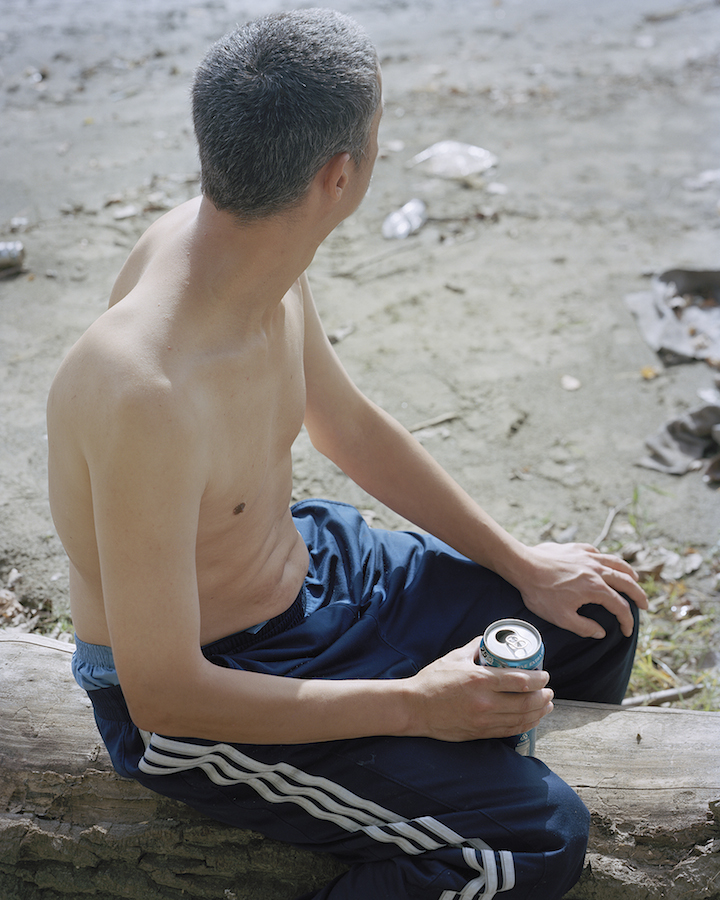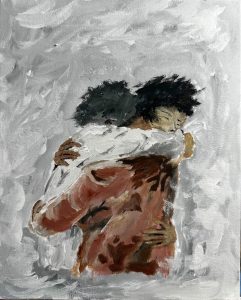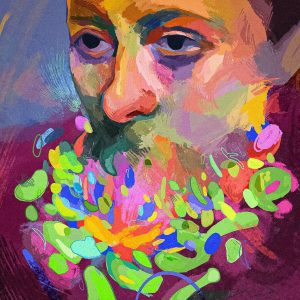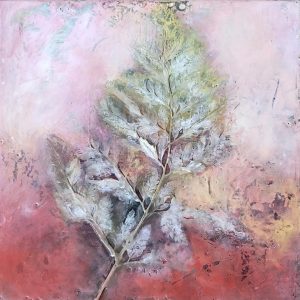Jonathan Stockton
About the contributor:
Jonathan is completing his MFA in photography at the Massachusetts College of Art and Design. He photographs in areas where communities form around addiction and documents how these communities change over time. His thesis show will be on view May 11-23 at MassArt’s Bakalar Gallery in Boston, MA. His work can be found at jonathanstockton.net.
About the artwork:
“I met Jerry (not his real name) as he drank tall boys [24-ounce cans of beer] on a warm autumn day along the Connecticut River, just downstream from a spot where many addicts get high. Jerry reminded me that I had to be careful in ‘these parts,’ and that he would see that I made it back up the embankement safely. But he had to finish his beers first. The next time I saw him, he had been sober for nearly two months. He said that just before Christmas, the police had found him in a city park, blacked out and chasing horses. He is now living in a halfway house, seeing a therapist, going to Alcoholics Anonymous meetings and trying to make amends for past wrongs. Meanwhile, a few blocks away, the local substance use treatment center is looking for a new home, sitting as it does on the footprint of a planned $800 million casino.”
Visual Editor’s note:
The social fabric of communities across America is being unraveled by an epidemic of addiction. Addicts become second-class citizens; we treat them as if the fault for their dependence lies solely within them, rather than also considering the society around them and the social conditions we tolerate. Addicts float to the margins, then wash up on lawns and abandoned beaches. Their essential humanity is resilient, however–hence the urge to commune and protect others…to look forward. I find this image, and the story, compelling, in part because they capture this humanity. Also because they highlight how we are willing to take away resources for treating one addiction in order to finance the creation of another.












